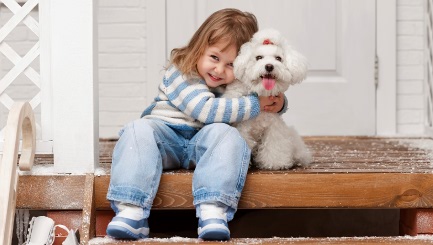Dogs May be Protecting Youngsters Against Childhood Asthma
 Dogs are often called man’s best friend. Now they might also be called your child’s best friend because their very presence could help rid your house of a virus that can cause childhood asthma.
Dogs are often called man’s best friend. Now they might also be called your child’s best friend because their very presence could help rid your house of a virus that can cause childhood asthma.
Respiratory syncytial virus (RSV) is a common infection in babies, causing respiratory symptoms similar to asthma. When the RSV infection is a severe one in a small child, there is a higher risk of the child going on to develop childhood asthma.
Now a team from the University of California have discovered that the house dust in homes with a dog offer protection against RSV infection. Their findings were presented at the 2012 general meeting of the American Society for Microbiology.
Their research involved three groups of mice: the first was fed with dust from homes with a dog before then being infected with RSV; the second were given RSV but had no exposure to dust; and the third group was the control group with no RSV infection.
The study concluded that the mice fed dust displayed none of the symptoms associated with RSV, such as inflammation and excess mucus. These mice also had a distinct gastrointestinal bacterial composition that was not present in the other mice.
The California team have previously researched pet ownership and its effects on childhood asthma development, showing that the dust from houses with cats or dogs is quite different from those without a pet and leading them to speculate that this dust may be what protects a child from RSV and consequently from childhood asthma.
The next step for the researchers is to identify the microbial species present in bacteria that is providing the protection against infection. Identifying those microbes could offer a potential breakthrough in reducing the risk of childhood asthma.
In the meantime, parents concerned for their child’s long-term health might do well to consider getting a dog.


Comments are closed.